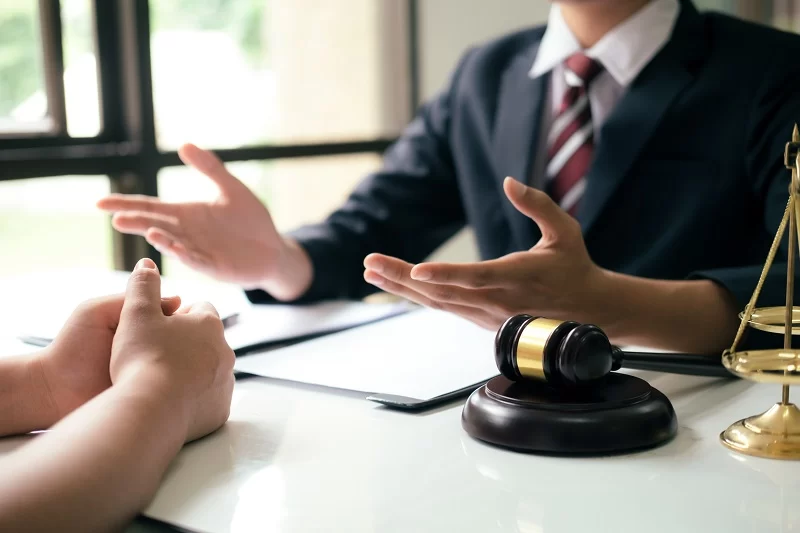- Understanding Violent Crime Charges
- Key Criminal Defense Strategies for Violent Crime Charges
- Real-Life Defense Case Examples
- Why Professional Defense Matters in Violent Crime Cases
- Getting Help from Fred Miller Lawyer
1. Understanding Violent Crime Charges
Violent crime charges are among the most serious accusations one can face in the legal system. These charges typically involve acts where physical harm or the threat of harm is directed toward another individual. Common examples include assault, robbery, homicide, and domestic violence. Understanding the specific nature of these charges is crucial because they carry severe penalties, including lengthy prison sentences and lasting social stigma.
Each violent crime charge is unique, influenced by the facts of the case, jurisdictional laws, and the evidence presented. For instance, an aggravated assault charge may require proving intent to cause serious bodily injury, while a robbery charge combines theft with the use or threat of force. This complexity highlights why criminal defense strategies for violent crime charges must be tailored carefully to each situation.
1.1. The Legal Implications of Violent Crime Accusations
The repercussions of a violent crime conviction go beyond incarceration. They can affect employment, housing opportunities, and personal relationships for years to come. Because of these profound impacts, mounting a strong defense is not just about contesting guilt but also about safeguarding one’s future.
2. Key Criminal Defense Strategies for Violent Crime Charges
When facing violent crime charges, having a well-structured defense strategy is essential. Criminal defense attorneys focus on multiple angles to protect their clients’ rights and achieve the best possible outcomes. Below, we explore some of the most effective strategies commonly employed:
2.1. Challenging the Evidence
A fundamental approach in violent crime defense is to rigorously examine the prosecution’s evidence. This includes scrutinizing witness testimonies, surveillance footage, forensic reports, and police procedures. Defense attorneys often look for inconsistencies, procedural errors, or violations of constitutional rights, such as unlawful searches or coerced confessions.
2.2. Establishing Alibis and Alternative Explanations
Providing a credible alibi can undermine the prosecution’s timeline and narrative. In some cases, defense teams present alternative explanations for injuries or incidents, suggesting self-defense, accident, or mistaken identity. These explanations must be supported by facts and sometimes by expert testimony.
2.3. Negotiating Plea Deals
Not all violent crime charges proceed to trial. Experienced defense attorneys often negotiate plea agreements that reduce charges or sentencing severity. This strategy can be particularly useful when evidence is strong but mitigating factors exist, such as lack of prior offenses or demonstrated remorse.
2.4. Using Expert Witnesses
Expert witnesses, including forensic specialists, psychologists, or medical professionals, can play a vital role in violent crime defense. They help clarify complex details for juries, challenge prosecution claims, or highlight mitigating circumstances related to the defendant’s mental state or actions.
3. Real-Life Defense Case Examples
To bring these strategies to life, consider a case where a defendant was charged with aggravated assault after an altercation outside a nightclub. The defense attorney discovered that the police report omitted key video evidence showing the defendant acted in self-defense. By presenting this footage in court, the attorney successfully demonstrated that the defendant responded to an immediate threat, leading to an acquittal.
In another case involving robbery charges, the defense attorney identified discrepancies in witness accounts and revealed that the alleged victim had a motive to falsely accuse the defendant. This revelation introduced reasonable doubt and contributed to the dismissal of charges.
Such cases underline the importance of a thorough and strategic defense when confronting violent crime charges.
3.1. Lessons from These Cases
These examples highlight that no two violent crime cases are the same. Each demands personalized attention, detailed investigation, and proactive defense. The role of a knowledgeable attorney is crucial in navigating these complexities and protecting the accused’s rights.
4. Why Professional Defense Matters in Violent Crime Cases
Facing violent crime charges without skilled legal representation significantly diminishes the chances of a favorable outcome. Professional defense attorneys understand the nuances of criminal law, courtroom dynamics, and negotiation tactics. They work not only to challenge evidence but also to build a compelling narrative that resonates with judges and juries.
Furthermore, defense lawyers provide critical emotional support and guidance during a highly stressful period, helping clients make informed decisions every step of the way. Their expertise can mean the difference between a conviction and freedom or reduced sentencing.
4.1. The Role of Experienced Attorneys Like Fred Miller Lawyer
For anyone charged with violent crime offenses, consulting experienced professionals like Fred Miller Lawyer can be a decisive step. They offer tailored defense strategies designed to address the unique aspects of each case. Whether it’s negotiating with prosecutors, challenging evidence, or advocating aggressively in court, their support is invaluable.
5. Getting Help from Fred Miller Lawyer
If you or someone you know is dealing with violent crime charges, timely and effective legal assistance is crucial. Fred Miller Lawyer provides comprehensive criminal defense services, focusing on protecting your rights and working toward the best possible outcome. Their commitment to personalized defense and deep understanding of violent crime law make them a trusted choice.
Contacting Fred Miller Lawyer early in the process ensures that your case is handled with the utmost professionalism and strategic insight, which can dramatically improve the chances of a positive resolution.


 law offices of dolly z hassan photos
law offices of dolly z hassan photos lefkowitz law group
lefkowitz law group hudson castle & inkell llc
hudson castle & inkell llc laub laub
laub laub corey shapiro attorney
corey shapiro attorney daryl pearlstein md
daryl pearlstein md